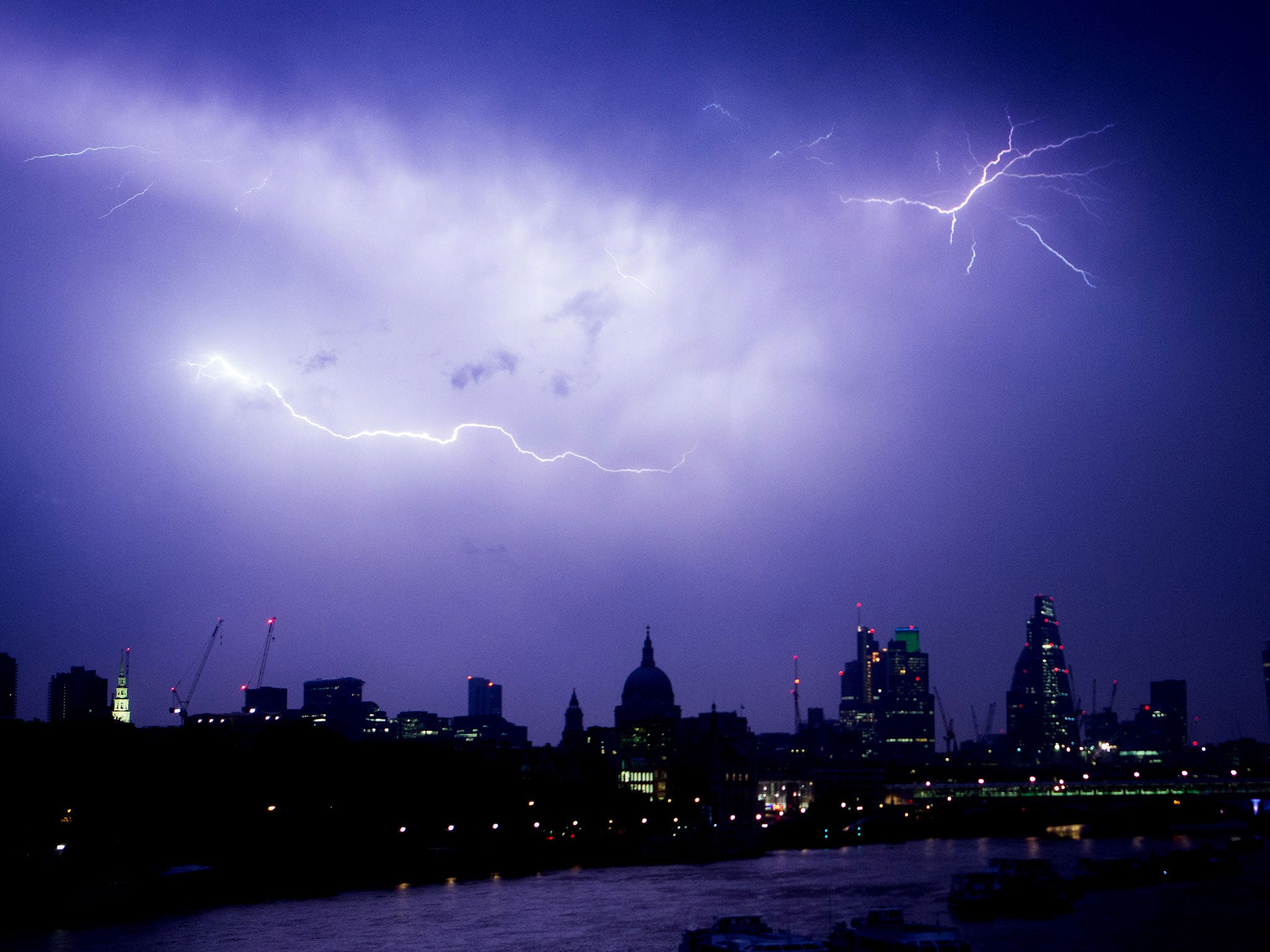Lightning storms: Why you can blame a 'kink' in the jet stream
It may be cool in America's eastern states, but Britain is suffering from Spain's humid heat

A “kink” in the jet stream – a ribbon of fast-moving air flowing high above North Atlantic Ocean – is pushing a mass of hot air from the Spanish plateau towards Britain, the Met Office said.
The jet stream normally flows in a fairly straight line from west to east but in recent days it has meandered further south into an almost-stationary kink, flowing north from Spain.
While the meandering jet stream has brought unseasonably cool weather to parts of the eastern states of America, it is causing the heatwave to spread across Britain from southern England.
Following widespread Thutrsday night storms, the Met Office predicts that there will be more heavy thunderstorms on Saturday resulting from a “Spanish plume”, when warm air from the continent is forced to rise rapidly when it meets the cooler air of the Atlantic – causing heavy downpours.
“There is potential for some intense thunderstorms on Saturday which could see large rainfall totals in a short space of time, which can cause flash flooding, as well as lightning and large hail,” said Andy Page, chief meteorologist at the Met Office.
“However, there are a lot of factors that have to come together to set off this situation, so it remains a risk rather than a certainty at the moment. Our meteorologists will be monitoring this around-the-clock as the situation develops,” Mr Page said.
Some scientist have linked stationary “kinks” in the jet stream to warmer overall temperatures and melting sea ice in the Arctic, causing by climate change. In summer they can produced prolonged hot, dry weather while in winter they can cause intense cold spells, they claim.
Subscribe to Independent Premium to bookmark this article
Want to bookmark your favourite articles and stories to read or reference later? Start your Independent Premium subscription today.

Join our commenting forum
Join thought-provoking conversations, follow other Independent readers and see their replies